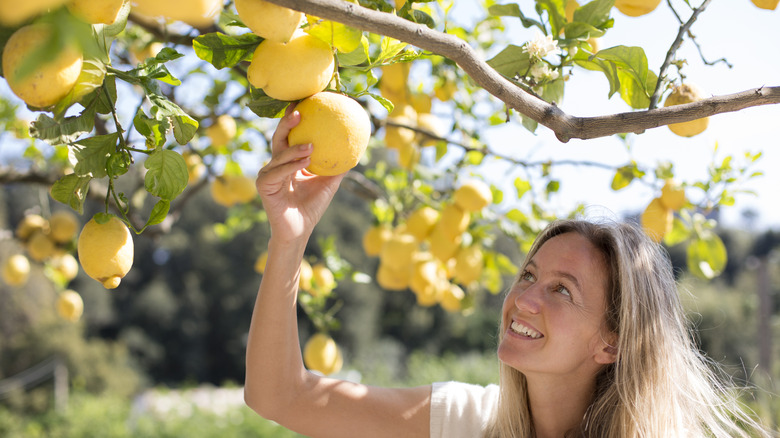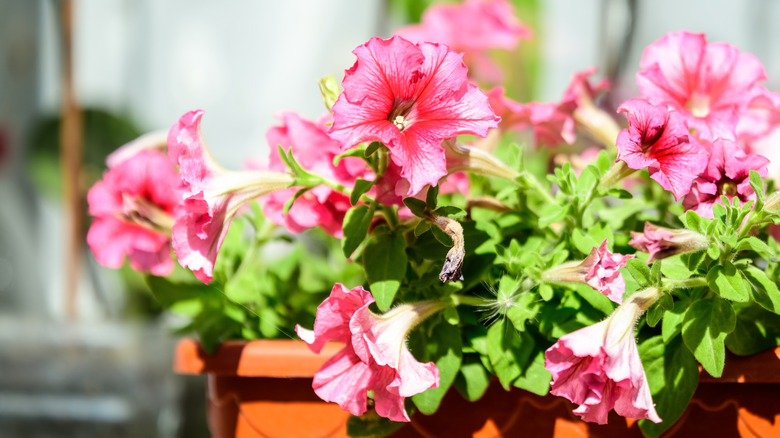The Bright And Beautiful Flower You Should Plant With Lemon Trees In The Garden
When it comes to gardening, lemon trees are the total package: These easy-care evergreens smell wonderful, offer gorgeous flowers, and produce fruit that has all kinds of culinary uses. Their main drawback is vulnerability to harmful insects. Companion planting can discourage pest infestations, keep weeds and erosion at bay, encourage soil to retain moisture, and provide other benefits that help your lemon tree live its best life. When planning what to plant beneath your lemon tree, consider garden petunias, which come in vibrant reds, pinks, purples, and more. In addition to being great mates for lemons, petunias are ideal companions for sweet alyssum and other bee magnets you can grow by your tree. When more pollinators visit your lemon trees, your likelihood of a bountiful harvest increases.
Companion planting involves pairing plants that favor similar growing conditions. Lemons thrive in USDA hardiness zones 9a through 11b, and petunias grow nicely in these warm regions as well. In fact, petunias can be cultivated as perennials in zones 10a through 11b, so you'll rarely have to replant them there. Like lemon trees, petunias appreciate full sun and damp soil that drains water efficiently. Their flowers will bloom throughout the summer, filling your garden with hummingbirds, bees, and other pollinators that help your lemon tree make lots of fruit. Since petunias are resistant to deer, they might even protect your fruit tree from nibbles. Perhaps best of all, they can deter aphids, which rob lemon trees of nutrients and damage their fruit.
Potted petunias can help lemon trees thrive, too
Have a potted lemon tree that would benefit from companions? Petunias may be a perfect match. Many petunias thrive in containers since their roots don't take up much space. This means you can plant them at the base of a lemon tree growing in a pot or planter box. Consider growing trailing petunia hybrids such as 'Easy Wave' and 'Tidal Wave' in your lemon trees' pots. If you plant them near the edges of the containers, they'll grow over the sides, creating an attractive cascade effect. Many garden petunias must be deadheaded to produce tons of beautiful flowers, but that's not the case for Wave petunias. In other words, they're an ideal choice for gardeners seeking low-maintenance lemon companions.
Give potted petunias as much sun as you can and make sure each container has several drainage holes, which can help prevent root rot. If there's no room for petunias at the base of your lemon tree, place containers of them nearby. This won't suppress weeds or aid in moisture retention, but it will attract pollinators. Surfinia petunias, which are designed to produce eye-catching cascades, work especially well in hanging baskets. Plus, they can handle the heat that lemon trees love so much. If you want lots of hummingbirds to visit, plant multiflora petunias. They make more nectar than most petunias, which helps these hungry little birds fill their bellies. Multiflora petunias thrive in containers, and many of their blossoms boast hummingbird-summoning reds and pinks. When hummingbirds come to your petunias, they're likely to pollinate your lemon tree's flowers as well.

